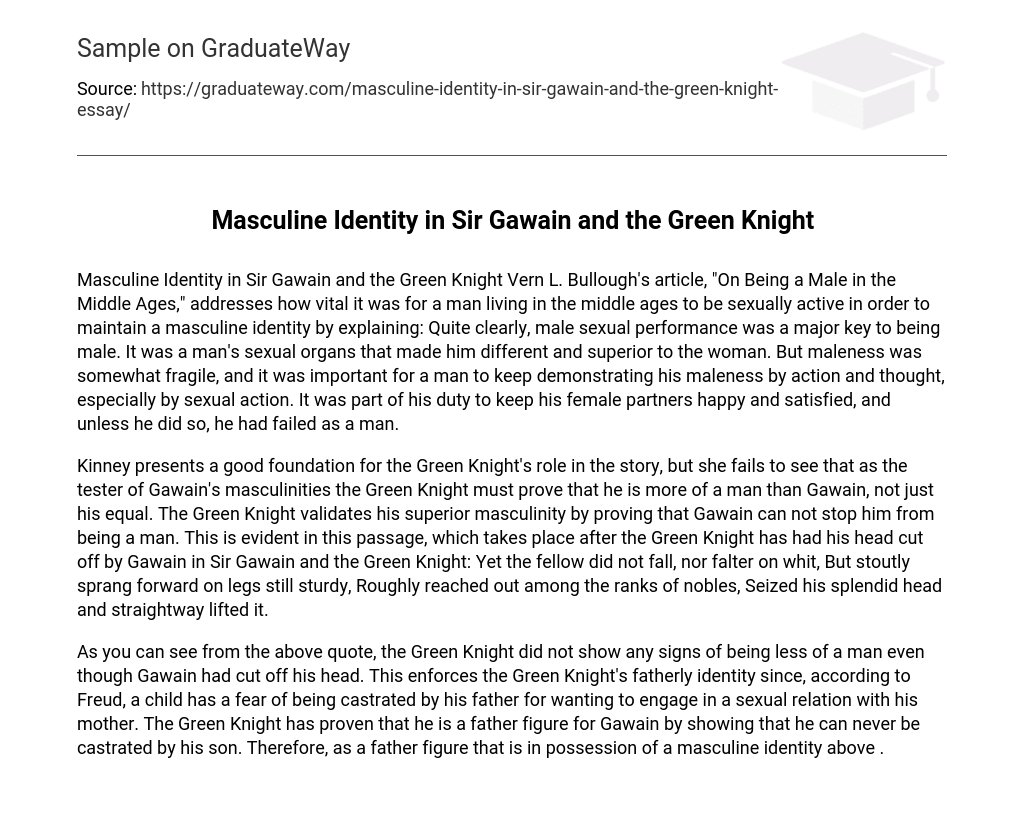In his article “On Being a Male in the Middle Ages,” Vern L. Bullough discusses the importance of sexual activity for maintaining a masculine identity during this time period. Bullough explains that male sexual performance was crucial in distinguishing men from women and asserting their superiority. However, masculinity was seen as delicate and required constant demonstration through actions and thoughts, particularly through sexual activity. It was considered a man’s duty to ensure the happiness and satisfaction of his female partners, and failure to do so was seen as a failure of his manhood.
The author, Kinney, argues that although she recognizes the Green Knight’s significance in the story, she overlooks the fact that in order to test Gawain’s masculinity, the Green Knight must prove that he is more of a man than Gawain, rather than just equal to him. The Green Knight establishes his superior masculinity by showing that Gawain cannot prevent him from remaining a man. This is evident in the following passage from Sir Gawain and the Green Knight: “Yet the fellow did not fall, nor falter on whit, But stoutly sprang forward on legs still sturdy, Roughly reached out among the ranks of nobles, Seized his splendid head and straightway lifted it.”
According to the above quote, the Green Knight remained unaffected by Gawain cutting off his head, thus solidifying his role as a fatherly figure. This aligns with Freud’s belief that children fear being castrated by their fathers for desiring a sexual relationship with their mothers. The Green Knight’s ability to withstand his son’s actions proves his fatherly role and his resistance to castration. As a result, he maintains a masculine identity superior to Gawain’s.





